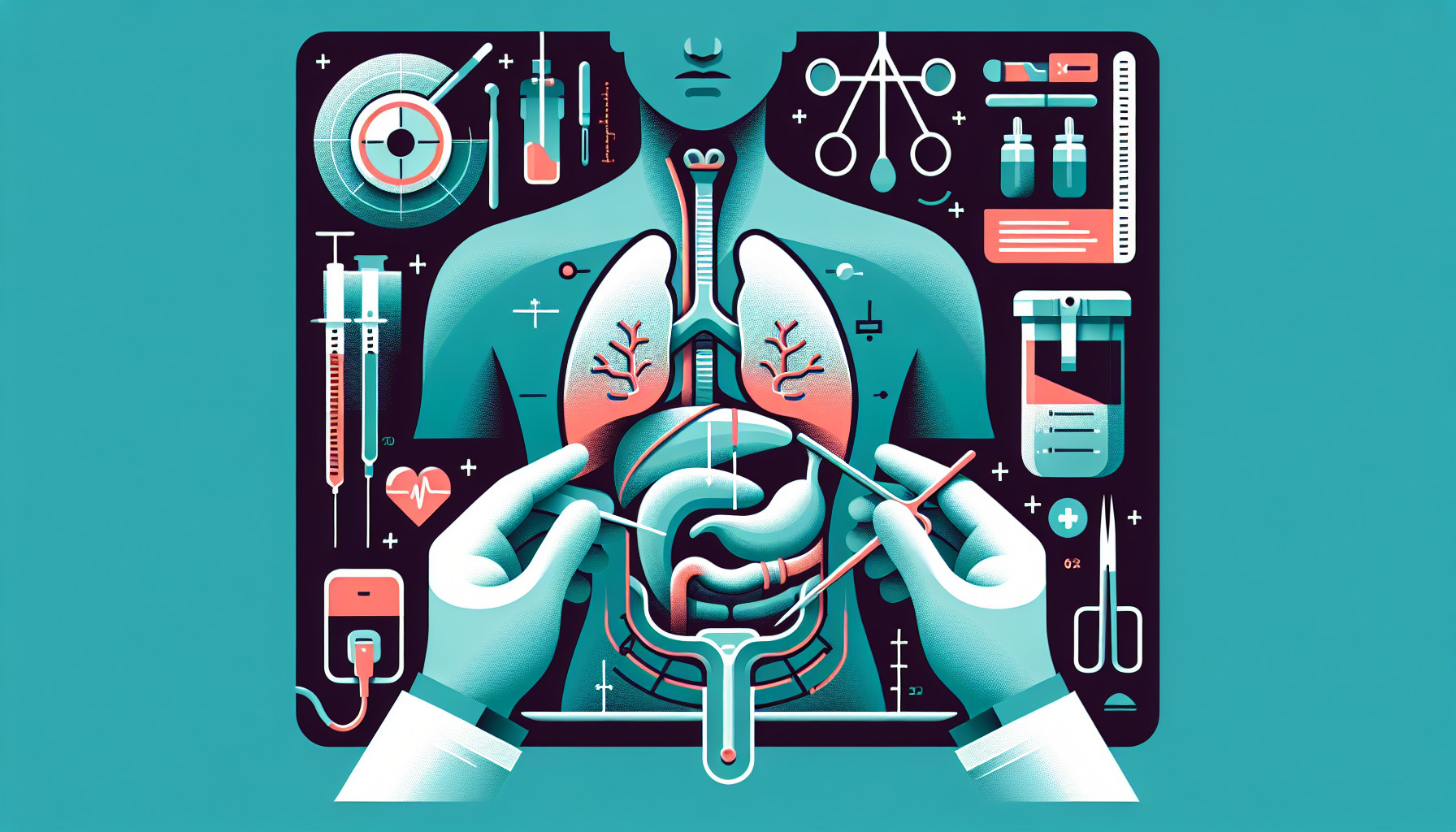Our Summary
This research paper discusses pancreas retransplantation (PRT), a procedure that is often debated because of the risks involved and improvements in treatment for diabetes. Most PRT procedures are done after a kidney transplant, usually when the original pancreas-kidney transplant fails but the kidney is still working.
In recent years, the number of PRT procedures has gone down, which is parallel to the decrease in pancreas after kidney transplant activity. The paper also highlights that PRT results are better when the original pancreas transplant failed due to technical issues or late immune system reactions. On the other hand, if the original transplant failed early due to immune system reactions and the patient has become sensitized (their immune system is now primed to attack a transplanted organ), the PRT is likely to have a poor outcome.
The researchers conclude that several factors should be considered when evaluating PRT, like why and when the original pancreas transplant failed and the patient’s surgical and immune system profile. They also note that PRT results should be looked at carefully because most original pancreas transplants are done with a kidney transplant, while most PRT are done alone. However, when comparing only the original pancreas transplants done alone to PRT, the outcomes are similar, especially at medical centers that do these procedures frequently.
FAQs
- What is pancreas retransplantation (PRT) and why is it a topic of debate?
- What factors are considered when evaluating a patient for pancreas retransplantation (PRT)?
- What are the common reasons for pancreas graft failure in pancreas after kidney (PAK) transplants?
Doctor’s Tip
A doctor may advise a patient considering a pancreas transplant to carefully consider the cause and timing of primary pancreas graft failure, as well as their surgical and immunological profile. They may also recommend seeking care at a high-volume center for better outcomes. It is important to understand the risks and benefits of pancreas retransplantation and to discuss all options with your healthcare provider.
Suitable For
Patients who are typically recommended for pancreas transplant include those with type 1 diabetes who have failed to achieve glycemic control through other means, such as insulin therapy or oral medications. Additionally, patients who have end-stage renal disease and require a kidney transplant may also be candidates for a simultaneous pancreas-kidney (SPK) transplant. Patients who have experienced pancreas graft failure following a previous transplant, such as a SPK or pancreas after kidney (PAK) transplant, may also be considered for pancreas retransplantation (PRT). Factors such as the cause and timing of primary pancreas graft failure, as well as the recipient’s surgical and immunological profile, are important considerations in determining whether a patient is a suitable candidate for PRT.
Timeline
Before pancreas transplant:
- Patient is diagnosed with diabetes mellitus and undergoes management with medications, diet, and insulin therapy.
- Patient’s diabetes progresses to end-stage renal disease, leading to the need for kidney transplantation.
- Patient undergoes simultaneous pancreas-kidney (SPK) transplant to treat both diabetes and renal failure.
- Primary pancreas graft failure occurs, leading to the need for pancreas retransplantation (PRT).
After pancreas transplant:
- Patient undergoes evaluation for PRT, including assessment of the cause and timing of primary pancreas graft failure.
- PRT procedure is performed, typically as a pancreas after kidney (PAK) transplant.
- Patient undergoes post-transplant monitoring and management to prevent complications and ensure graft survival.
- Outcomes of PRT are evaluated based on factors such as technical or immunological failure, recipient’s surgical and immunological profile, and sensitization.
- Long-term follow-up is required to monitor graft function and overall health of the patient.
What to Ask Your Doctor
Some questions a patient should ask their doctor about pancreas transplant include:
- What are the specific risks and benefits of undergoing a pancreas retransplantation?
- What are the reasons for my primary pancreas graft failure and how does that impact my eligibility for a pancreas retransplantation?
- What is the success rate of pancreas retransplantation compared to primary pancreas transplantation?
- How will undergoing a pancreas retransplantation impact my overall health and quality of life?
- What is the recovery process like after a pancreas retransplantation and what kind of follow-up care will be necessary?
- Are there any specific criteria or tests I need to meet or undergo in order to be eligible for a pancreas retransplantation?
- What are the potential complications or risks associated with pancreas retransplantation and how are they managed?
- What is the expected timeline for receiving a pancreas retransplantation and what factors may impact the wait time?
- Can you provide information on the success rates and outcomes of pancreas retransplantation at your facility?
- Are there any alternative treatments or options I should consider before deciding on a pancreas retransplantation?
Reference
Authors: Perosa M, Miranda TG, Danziere FR. Journal: Curr Opin Organ Transplant. 2025 Aug 1;30(4):323-329. doi: 10.1097/MOT.0000000000001225. Epub 2025 May 2. PMID: 40314112
